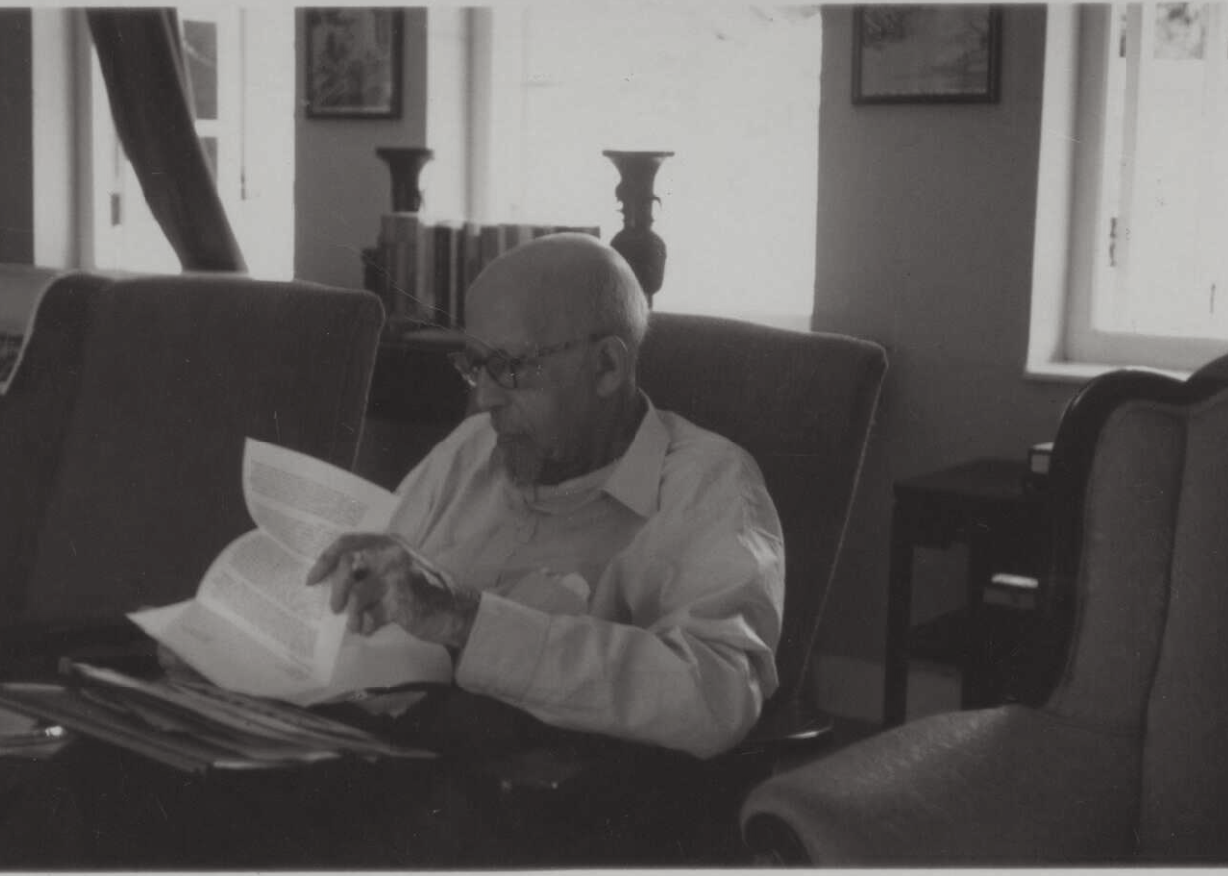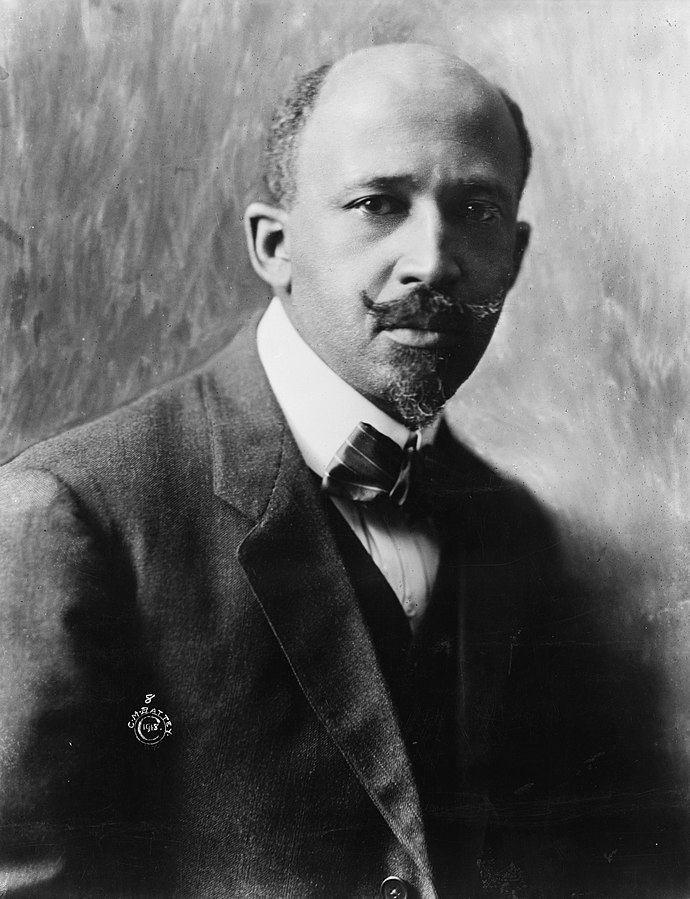The Legacy of W.E.B. Du Bois
By Daniel Rose
Commentators have long noted the crucial function of heroes, role models and mentors in advancing the goals of society. When the great W.E.B. Du Bois proclaimed “The Negro race, like all other races, is going to be saved by its exceptional men”, he was urging the constructive involvement in community life of the Black Talented Tenth, while also announcing his own lifelong commitment to the advancement of his fellow African Americans.
Du Bois was an intellectual and spiritual giant who is widely considered by knowledgeable observers to have been the most important and remarkable people in American history. A prodigiously productive scholar, author, political activist and racial spokesman, his national impact was profound.
The sad lack of knowledge and appreciation of past heroes in American life today is reflected in the widespread ignorance – even in the African American community – of the achievements and accomplishments of this monumental figure.

As one of the founders of the NAACP (National Association for the Advancement of Colored People) in 1909, he was a leading social originator; as founding editor of the NAACP’s monthly journal “The Crisis,” whose crusading editorials were the most widely read communications in the African American world (1920 circulation: over 100,000), he was for decades the community’s most prominent spokesman; as the first Black American to receive a Ph.D. (Harvard B.A. degree cum laude, 1890; Harvard Ph.D., 1895), he was a trail blazer and role model for so many followers and admirers. Du Bois was an early and fervent supporter of women’s rights and women’s electoral suffrage; and he fought furiously and successfully for the visible inclusion in the American military of African American officers. In 1921, he publicly decried Harvard’s decision to ban African American students from its dormitories.
In 1936, on a round-the-world trip that included visits to Germany, China and Japan, he was horrified by the Nazi treatment of the Jews, which he publicly and prominently described as “an attack on civilization, comparable only to such horrors as the Spanish Inquisition and the African slave trade”.
When anti-Black adversaries trumped up a phony political case against him, Du Bois was brought to trial in 1951 on obviously contrived charges, and he was represented by civil rights attorney Vito Marcantonio. The case was dismissed before trial as soon as the defense attorney told the presiding judge that “Dr. Albert Einstein has offered to appear as a character witness for Dr. Du Bois.”
In 1961, Ghana President Kwame Nkrumah notified Du Bois that his government had appropriated funds to support the Encyclopedia Africana project he had proposed, and at the age of 93, Du Bois and his wife moved to Ghana, bringing with them Du Bois’ voluminous personal files, his extensive library and many personal effects. His health declined over the next two years, and on August 27, 1963, William Edward Burghardt Du Bois died in a hospital in Accra, the national capital.
The following day, at the March on Washington at the Lincoln Memorial, before an audience of over 200,000, speaker Roy Wilkins asked the assembly to honor Du Bois with a moment of silence. He was given a state funeral in Ghana on August 29-30, 1963; and his and his deceased wife’s remains were buried in their former home, which was designated as the W.E.B. Du Bois Memorial Centre for Pan-African Culture.
In 2013, John Whitehead, U.S. Deputy Secretary of State in the Reagan administration, was appalled to discover that the Du Bois memorial had fallen into a state of total dilapidation. At his instigation, an American 501(c)3 philanthropic entity was created for the restoration and preservation of an appropriate memorial for this outstanding American.
The vision is to renew, reimagine, rebuild and rededicate the Memorial Centre as the W. E. B. Du Bois Museum Complex. A dream team of leaders from the African continent and the United States—Black and white—is dedicated to transforming this site into a world-class destination for scholars and heritage tourists alike. It will serve to preserve the papers, books, and writings of Dr. Du Bois, function as a cultural center for Ghana, be the initial gateway to African history for returning visitors from the African diaspora, and support the growth of the Pan-African economy as a center for cross-border entrepreneurship and investment.
On September 27, 2019, the team met with President of Ghana, Nana Addo Dankwa Akufo-Addo, in New York City to share the vision. The team was led by Daniel Rose, founder and CEO of the Helping Africa Foundation (HAF); Deborah Rose, president and visiting scholar at Harvard University’s FXB Center for Health & Human Rights; Japhet Aryiku, Ghanaian American executive director of HAF and retired vice president of JPMorgan Chase; and Professors Henry Louis Gates, Jr., of Harvard University and Kwame Anthony Appiah of New York University, both of whom are renowned scholars and guardians of the Du Bois legacy. President Akufo-Addo enthusiastically agreed with the vision.
On December 5, 2019, the conceptual design was presented to President Akufo-Addo at Jubilee House in Accra and was enthusiastically received. The Ghanaian government signed a Memorandum of Understanding with the W. E. B. Du Bois Museum Foundation in Accra on October 15, 2020, and the final Agreement turning over control and development of the site to the Foundation was signed in New York on September 22, 2023, witnessed by President Akufo-Addo.
The W.E.B. Du Bois Museum Foundation has thus been designated by the government of Ghana to administer the affairs of this permanent tribute. Japhet Aryiku, formerly an esteemed Vice President of JPMorgan Chase and Co., is the Executive Director of the Foundation. He can be contacted at japhet@webdmf.org for information for those wishing to support this meaningful, significant, and timely enterprise.

